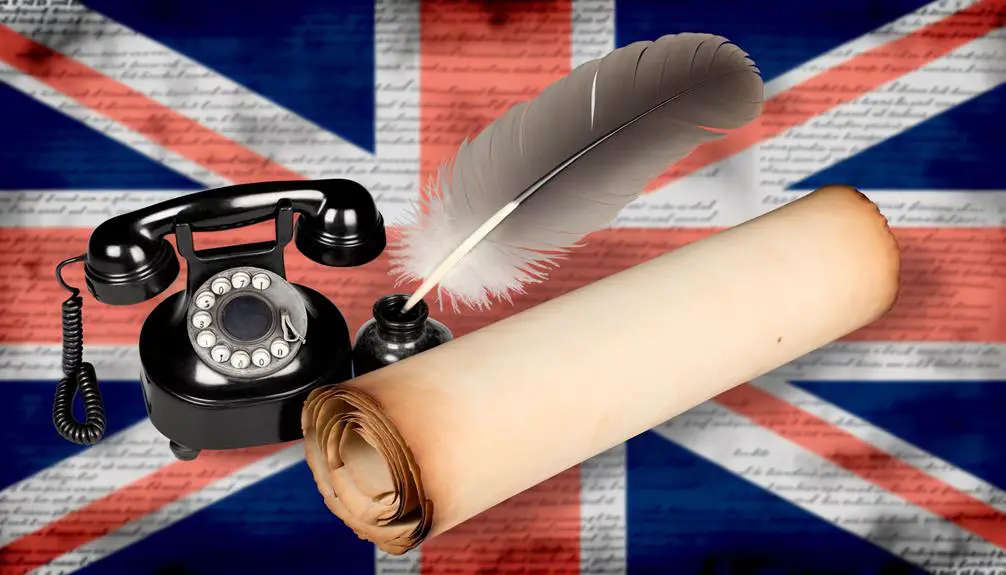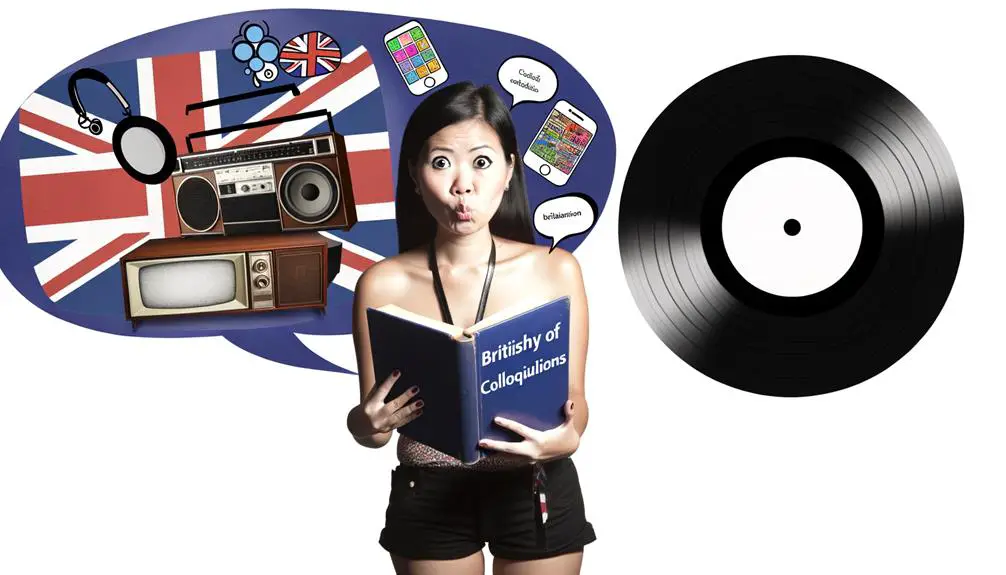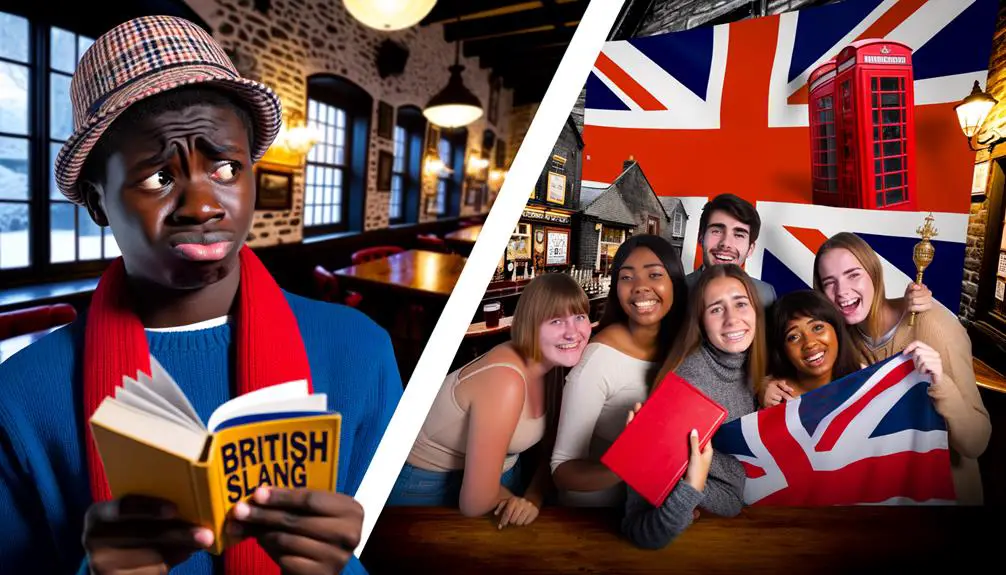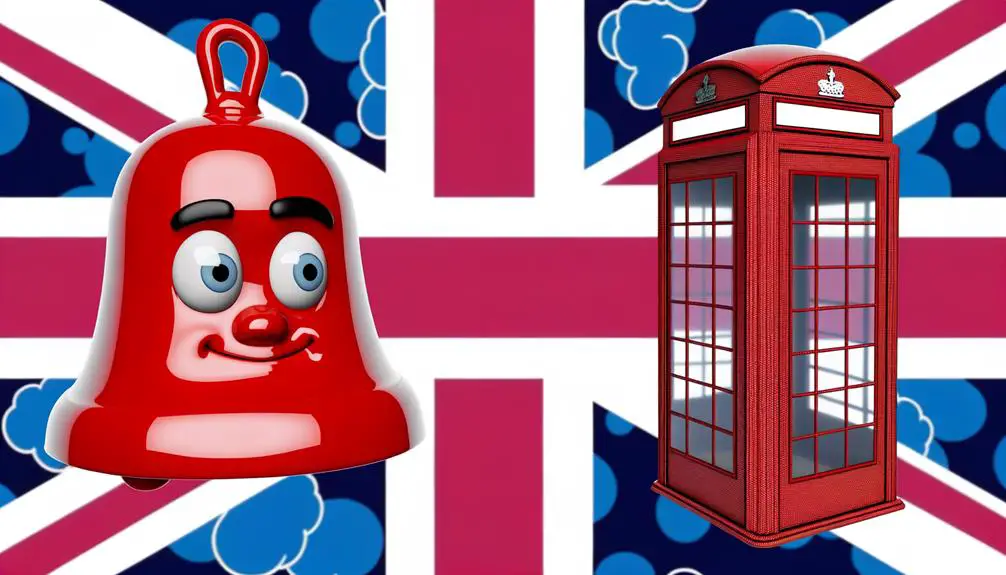In British slang, 'bellend' is what you'd cheekily call someone when they're acting like the tip of a penis – literally. Yeah, you read that right. It blends anatomic cheek with the sort of humor Brits are famed for. Beyond its literal giggle-inducing meaning, it's a staple in playful banter or a lighthearted jab among mates. Its presence in British pop culture, from TV shows to tweets, underlines its role as a cultural touchstone. Depending on the tone and context, it can flip from a term of endearment to a barb. Stick around to discover how it weaves through conversations and cultures.
Key Takeaways
- 'Bellend' in British slang refers to the tip of a penis, blending anatomical references with humor.
- It has evolved from a literal term to a metaphorical insult or playful jab in British culture.
- The word is a staple in British pop culture, appearing frequently in films, TV shows, and music.
- Usage and acceptance vary by region and context, reflecting the diversity of British slang.
- Understanding the dual nature of 'bellend' as both humorous and potentially offensive is crucial for effective communication.
The Origin of Bellend

Diving into the quirky depths of British slang, you'll find that 'bellend' has a cheeky origin that's as amusing as it is historically rich. The etymology debates surrounding this term are as spirited as a pub brawl, with historians and linguists throwing their hats into the ring. You might wonder, how did a word that tickles the modern ear come to be? Well, it's a journey back in time, where words morphed with society's changing landscapes.
Historical significance isn't a phrase often associated with slang, especially of the risqué variety. Yet, 'bellend' wades through the annals of time, popping up in unexpected places. It's a linguistic relic, surviving through centuries of English evolution, adapting, and securing its spot in the vernacular. The term's endurance speaks to the British penchant for humor, especially of the kind that's a bit naughty. This blend of historical staying power and cultural embracement makes 'bellend' more than just a word; it's a reflection of the playful complexity of British slang.
Literal Meaning Explained
At its core, 'bellend' refers to the tip of a penis, showcasing British slang's knack for blending anatomical references with cheeky humor. This term is a prime example of how everyday language in the UK doesn't shy away from a bit of risqué fun. It's a linguistic journey from the literal to the metaphorical, where anatomical comparison becomes a playground for wit.
Delving into the slang etymology, 'bellend' is more than just a naughty nod to human anatomy. It's a word that carries with it a rich tapestry of cultural nuances, evolving from a straightforward anatomical term into a versatile expression of jest, derision, or even affection in the right context. The shift from the physical to the figurative is seamless, reflecting the British penchant for understatement and double entendre.
Understanding 'bellend' in its literal sense is your key to revealing a deeper appreciation for the creativity and humor embedded in British slang. It's a reminder that language is not just a tool for communication but also a reflection of culture, humor, and the human condition. So, next time you hear or see 'bellend', you'll know exactly where it's coming from—both anatomically and linguistically.
Bellend in Popular Culture

You've likely heard 'bellend' tossed around in British films and TV shows, where it's become a staple of comedic gold and cultural expression. This term, cheeky and loaded with personality, has wiggled its way into the scripts of your favorite British sitcoms and dramas, providing a laugh or an eye-roll at just the right moments. It's as if the word itself has a backstage pass to the coolest spots in UK pop culture.
Now, let's talk celebrity endorsements—not the kind you're thinking of, though. No one's slapping the word 'bellend' on a bottle of perfume and calling it a day. Instead, famous faces across the UK are reclaiming it in interviews and social media, using it with a wink and a nudge, endearing themselves to fans who appreciate the humor and honesty.
Music references? They're here in spades. British bands and solo artists drop 'bellend' into their lyrics with the finesse of a seasoned lyricist, turning a once-taboo term into a badge of authenticity and relatability. It's not just a word; it's a cultural touchstone that resonates with anyone who's ever found themselves chuckling at the quirks of British slang.
Variations Across the UK
As you gallivant across the UK, you'll notice that 'bellend' isn't just a one-size-fits-all insult. From the rolling hills of Scotland to the bustling streets of London, regional interpretations and slang evolution trends give this word a unique flavor wherever you go. So, let's take a cheeky look at how this term adapts and thrives across the British Isles.
Regional Interpretations
Diving into the regional interpretations, you'll find that 'bellend' takes on unique nuances across the UK, reflecting the rich tapestry of British dialects. This term, cheeky as it might be, showcases the dialect differences and cultural significance embedded within the English language. In some parts of Northern England, it's almost a term of endearment, thrown around in jovial banter. Cross over to Scotland, and it might carry a bit more sting, though still within the bounds of humor. Welsh interpretations can vary widely, depending on the context and tone. Each region adds its own flavor, making 'bellend' a fascinating example of how a single word can mirror the diverse linguistic landscape of the UK.
Slang Evolution Trends
The evolution of slang, including terms like 'bellend', reveals a fascinating journey through the UK's linguistic landscapes, where each region has spun its own unique twist on the word. Language adaptation and cultural influences play a huge role in this evolution, making the slang as diverse as the people who use it.
- In Scotland, you'll find it laced with a distinct accent, adding a layer of invigorating charm.
- Down in London, it's often mixed with multicultural vernaculars, showcasing the city's rich diversity.
- In the North, it's delivered with a straightforwardness that's as invigorating as it is humorous.
Understanding these variations gives you a front-row seat to the dynamic and ever-changing world of British slang, where every word's journey tells a story of cultural convergence and linguistic creativity.
Usage and Context

You'll often find 'bellend' peppered into British banter, serving both as a playful jab and a sharp critique, depending on the tone and context. The way it rolls off the tongue might vary across the UK, with pronunciation differences highlighting the rich tapestry of British accents. But regardless of whether it's uttered with a soft southern lilt or a hard northern twang, the intention behind the word is universally understood within the isles. However, throw it into conversation outside of Britain, and you might be met with blank stares or confused looks, underscoring the interesting challenge of international understanding when it comes to slang.
Navigating the waters of when and how to use 'bellend' is akin to learning an intricate dance. It's all about reading the room. Among friends, it might provoke laughter and a playful nudge in response. In a different setting, its reception could be less than warm, to say the least. The beauty of 'bellend' lies in its versatility, morphing seamlessly from a term of endearment among mates to a pointed barb in the heat of an argument. Understanding its dual nature is key to wielding this piece of British slang effectively.
Social Acceptance and Taboos
While it's a staple of British humour, navigating the social minefield surrounding 'bellend' requires a keen awareness of its acceptance and the taboos that come with it. This term, rich in cultural norms and social linguistics, can be as slippery as an eel in the wrong company. To guarantee you're not stepping on any cultural toes, let's break down the dos and don'ts:
- Know Your Audience: Your mates at the pub might chuckle, but your grandmother? Probably not so much.
- Context is Key: Dropping a 'bellend' during a casual banter? Fair game. In a job interview? Not advisable.
- Regional Sensitivity: Remember, the UK is a patchwork of dialects and sensibilities. What's banter in one place could be fighting words in another.
Navigating the intricacies of 'bellend' in conversation isn't just about knowing the word; it's about understanding the cultural tapestry it weaves through. It's a linguistic dance, one that requires both the knowledge of when to step forward and when to gracefully bow out. So, tread lightly, and you'll likely enjoy the camaraderie that comes with mastering this piece of British slang.
Responding to Being Called a Bellend

If you've ever been on the receiving end of being called a bellend, fear not; you're now in the quintessentially British arena of banter. Handling the insult with grace and a dash of wit can turn the tables faster than you can say "cuppa". So, let's explore how you can craft a response that'll leave them laughing with you, not at you.
Handling Insult Gracefully
Being called a bellend isn't exactly a compliment, but there's an art to handling such barbs with grace and a bit of cheek. It's all about striking the right balance between showing you're not ruffled by the comment and not escalating the situation. Here's how you can do it with aplomb:
- Laugh it off: A chuckle shows you're secure enough not to take every insult to heart.
- Ignore with style: Sometimes, the most powerful response is no response. Walk away with your head held high.
- Deploy emotional intelligence: Use this moment as a lesson in conflict resolution, gauging when to engage and when to let things slide.
Crafting a Witty Response
Traversing the murky waters of British slang, you'll find that a clever retort to being dubbed a 'bellend' can disarm the insulter with unexpected finesse. Employing humor techniques and comeback strategies guarantees you come out on top, smiling.
| Humor Technique | Example Response |
|---|---|
| Self-deprecation | 'Well, it takes one to know one, doesn't it?' |
| Exaggeration | 'Finally, I've been promoted from a simpleton to a bellend!' |
| Playful Ignorance | 'Bellend? I always thought I was more of a knob, but thanks for the upgrade!'
Each approach, brimming with wit and cultural savvy, flips the script. Instead of steering, you're maneuvering the conversation with humor, showcasing not just your command of slang but your unflappable cool under verbal fire.







